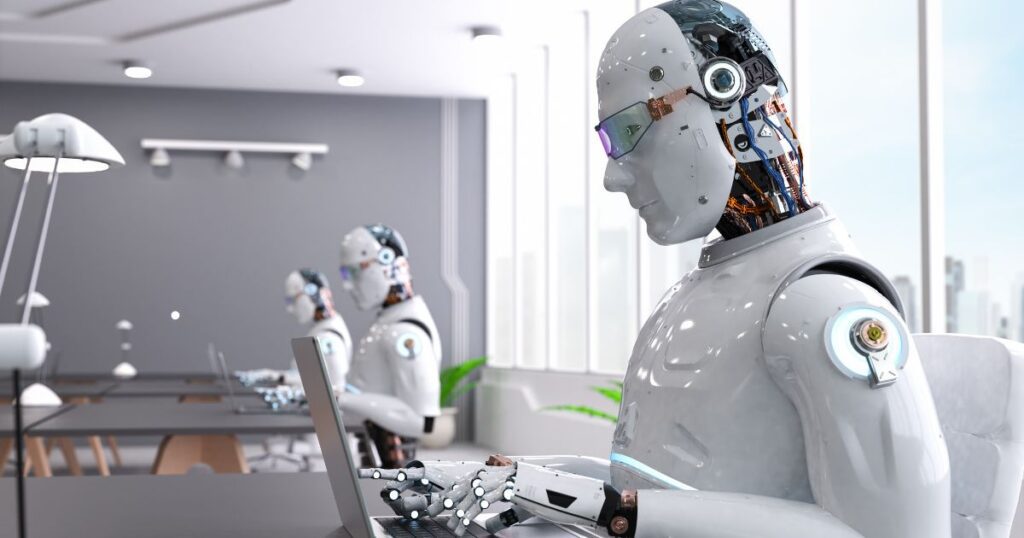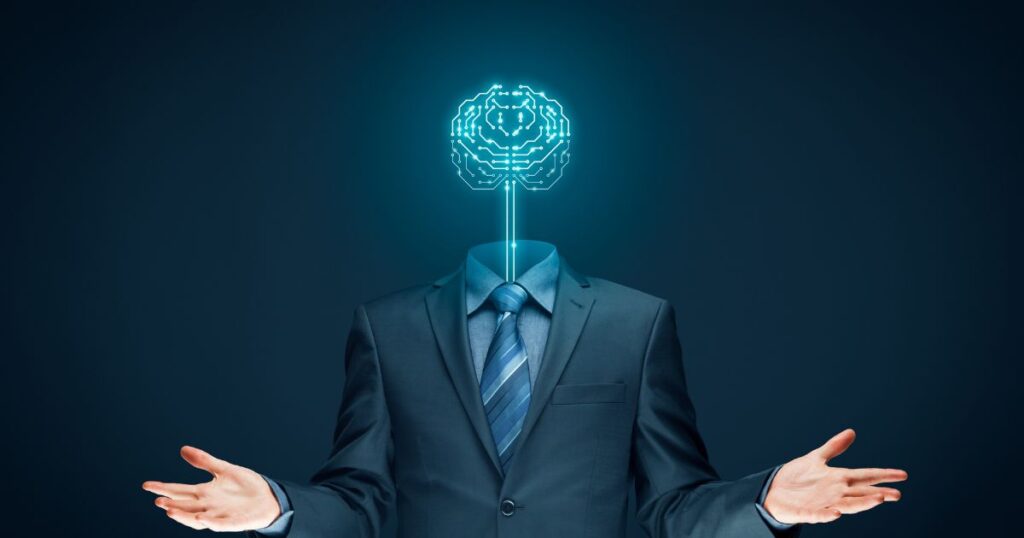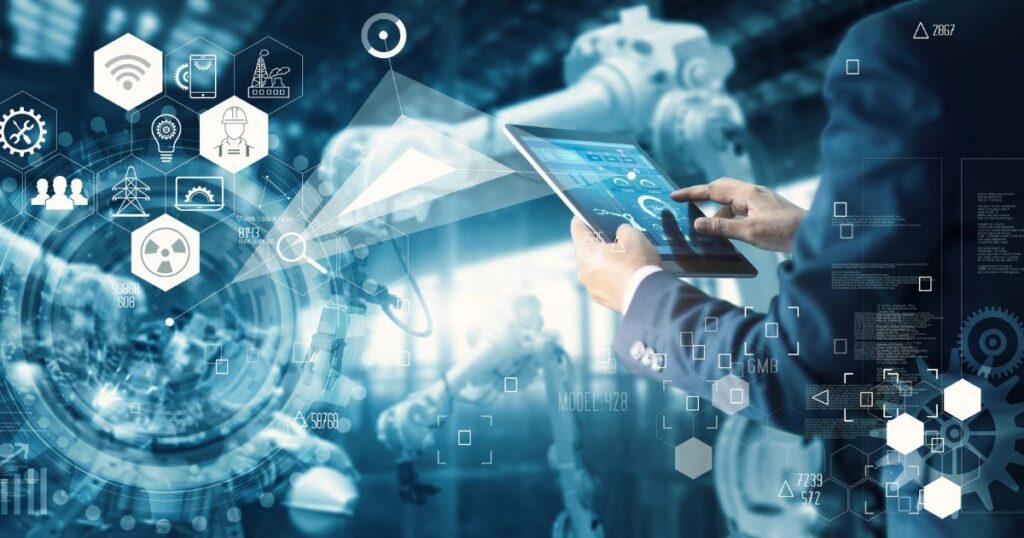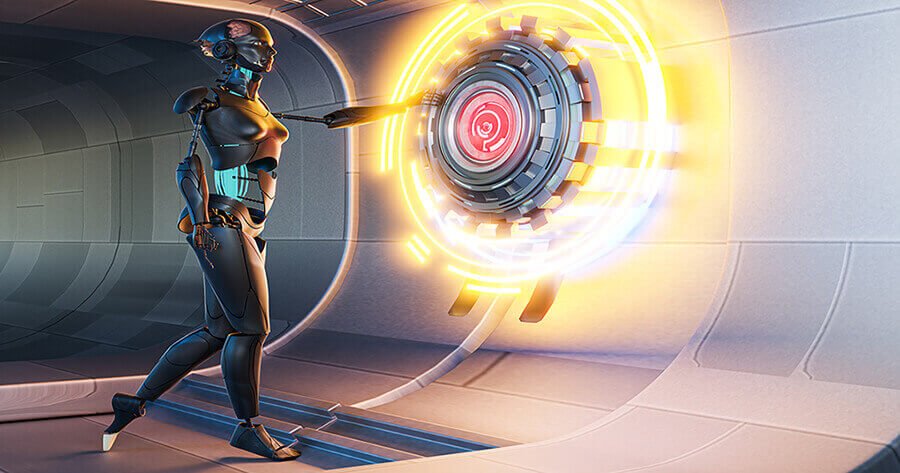Artificial Intelligence (AI) has emerged as a powerful force shaping the modern world. It has the potential to automate numerous jobs while simultaneously creating new ones, resulting in a significant transformation of jobs dynamics.
Many experts predict that the impact of artificial intelligence on employment will result in the automation of repetitive tasks, leading to job displacement in certain industries.
AI refers to the capacity of machines and robots to execute tasks previously undertaken by humans. Some AI programs exhibit expertise comparable to human specialists in various domains, including computer search engines, medical diagnosis, and chatbots.
The ubiquity of AI continues to grow, influencing various aspects of life and industries. Its profound effects are particularly evident in career opportunities and problem-solving approaches.
However, a substantial debate persists regarding whether Artificial Intelligence will predominantly automate existing jobs, generate fresh employment prospects, or even displace human workers entirely.
This article delves into the intricate interplay between automation and Artificial Intelligence to explore which might hold the upper hand in shaping the future of work.

Automation Through Artificial Intelligence
Modern AI tools, such as ChatGPT, are revolutionizing human interactions with technology. They have successfully automated a multitude of tasks previously performed by human workers. The future of Artificial Intelligence and jobs is a topic of great debate and speculation in the era of modern technology.
Economic research conducted by Goldman Sachs has revealed that AI automation threatens approximately two-thirds of current jobs in the United States and Europe. This research suggests that Artificial Intelligence can potentially transition 300 million full-time jobs into automated roles.
Jobs Automated By AI
AI-driven automation may impact specific occupations more than others. While Artificial Intelligence can execute many tasks, certain jobs still necessitate human expertise for intricate decision-making, critical thinking, and interpersonal interactions.
The following list outlines jobs that are particularly susceptible to automation:
1. Data entry and analysis
2. Predictive analytics and forecasting
3. Customer service and support
4. Administrative tasks
5. Medical diagnosis
6. Research tasks
7. Stock market trading
8. Pharmacy and medication dispensing
9. Graphic design and video editing
10. Remote monitoring
The Impact of Artificial Intelligence on Employment
The contemporary job market is rapidly evolving due to the integration of modern technology. In the AI era, the role of humans within the job market is undergoing a transformative process.
The implications of this transformation, whether beneficial or detrimental to humans, remain a topic of vigorous debate. Here, we examine some of the key impacts of Artificial Intelligence automation on employment.

Positive Impacts of AI
1. New Job Opportunities:
AI technology has spawned a plethora of new job categories in the labor market. These emerging roles require individuals with intelligence and skills to operate and innovate within the Artificial Intelligence ecosystem.
2. Increase in Productivity:
Automation enables companies to boost productivity within shorter timeframes and with fewer employees. It allows businesses to offer more services within budget constraints and deliver products at lower prices to the public.
3. Enhanced Quality:
Artificial Intelligence technology is renowned for its precision and reduced error rates. Consequently, products manufactured through automation are more accurate and precise than those produced solely by human labor.
4. Cost Savings:
Companies can reduce operational costs by employing automation instead of hiring high-wage workers. Hence, collaborating with artificial intelligence proves cost-effective for businesses compared to maintaining a workforce.
Negative Impacts of AI
1. Job Displacement:
Artificial Intelligence technologies perform various tasks, displacing certain job roles previously held by human workers. Several industries have transitioned to AI-driven solutions, resulting in employee job losses.
2. Skill Mismatch:
Modern technology and AI necessitate a high degree of expertise for operation. Many workers with prior skill sets must adapt to this new technological landscape, leading to unemployment due to skill mismatches.
3. Economic Inequality:
The rise of AI automation has exacerbated societal economic disparities. Workers needing more proficiency in modern technology need help to secure high-paying jobs, while low to medium-paying positions are increasingly automated. This shift has contributed to economic inequality.
4. Dependency on Technology:
Society’s dependence on technology grows, with numerous daily tasks relying on seamless operation. Any technological breakdown or disruption can inflict substantial financial losses on technology-based companies, highlighting the potential vulnerabilities of the Artificial Intelligence marketplace.
Creation of New Jobs

While AI has replaced many traditional job roles, it has fostered new employment opportunities. Highly skilled workers, scientists, and researchers are essential for designing and operating automated systems.
Researchers are actively exploring the future landscape of Artificial Intelligence and its impact on employment, seeking to understand whether Artificial Intelligence is a replacement for workers or a catalyst for job creation.
1. Artificial Intelligence vs. Emotional Intelligence
AI excels at executing tasks through machinery but lacks human attributes such as creativity, empathy, and critical thinking. These uniquely human qualities are increasingly valued in the AI era as they complement AI’s capabilities.
Many experts debate whether automation vs AI which is better, but ultimately, it depends on the specific task. Consequently, highly skilled workers with emotional intelligence continue to find employment within AI-driven industries.
2. AI Research and Development
AI relies on human innovation to grow. In this age of Artificial Intelligence, new tools and machines are continually integrated into the technological landscape. Human creativity is paramount in creating these programs, robots, and systems.
Engineering, software development, and programming job opportunities continue to surge as technology advances. AI is not displacing workers; it is reshaping employment from manual labor to roles that require high levels of skill.
3. AI Training and Data Annotation
AI systems require professionals to create labelled and annotated data for training purposes. As a result, experts skilled in crafting datasets that enhance model accuracy and effectiveness are in high demand.
Conclusion
Artificial intelligence has undeniably revolutionized the world through technological advancements, fundamentally altering how industries operate. While AI has replaced certain job roles, it has generated numerous job opportunities concurrently.
Rather than dwelling on the negative aspects of AI, individuals must invest in upgrading their skills and exploring new technologies to seize emerging employment prospects.
It is essential to recognize that AI is simultaneously automating existing jobs and creating new, high-paying positions within the industry. To maximize opportunities in the AI era, individuals should align themselves with fields catering to modern AI technologies’ demands.
Staying informed about the latest technological trends and continuously updating one’s skill set is crucial for navigating the ever-evolving landscape of AI and employment.
Be aware of the world’s latest technology trends, and read more updated articles related to tech here.
Frequently Asked Questions
How is AI going to replace jobs?
AI is replacing mostly those jobs that require repetitive and manual tasks. It performs mostly data management and production functions because it gives more accurate and precise results. Retail and commerce, banking, and data entry work are the most common functions performed with AI.
Can AI systems replace human jobs?
Artificial intelligence works in many fields to perform different tasks. Still, it cannot replace humans because it needs more critical thinking, emotional intelligence, teamwork, and complex decision-making.
Can AI create new knowledge?
AI can just perform the function with the data available. It can produce a quick search and combine it into an idea, but it cannot create new knowledge.


